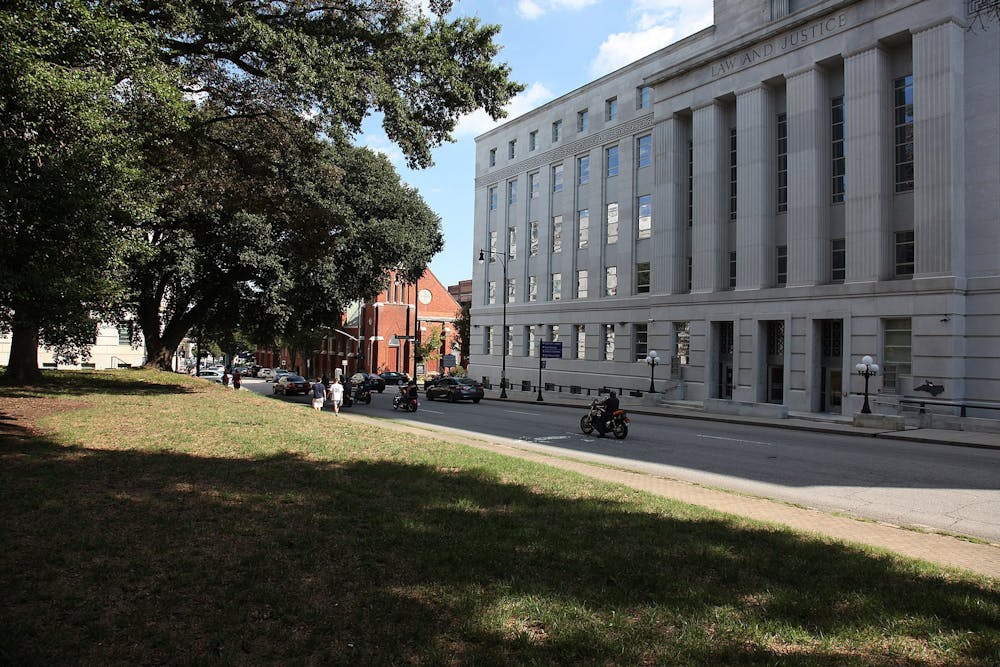The North Carolina Supreme Court recently ruled 4-3 in an unprecedented decision ordering the state legislature to transfer money from government reserves to state agencies to implement an education remedial plan. The vote, which upheld a lower judge's previous ruling, was split along party lines.
“If this Court is to fulfill its own constitutional obligations, it can no longer patiently wait for the day, year, or decade when the State gets around to acting on its constitutional duty ‘to guard and maintain’ the constitutional rights of North Carolina schoolchildren,” Judge Robin Hudson wrote for the majority.
The ruling stems from Leandro v. State of North Carolina, first filed in 1994, in which five-counties from low-wealth counties filed a lawsuit against the state for not providing enough funds for their children to have equal education opportunities when compared to their wealthier counterparts.
The Nov. 4 decision calls for $785 million to fund the second and third year of an eight-year plan, which calls for more than $5.6 billion to be spent on improving public schools by 2028. The initial order was $1.75 billion before a different trial judge lowered it.
“It’s our constitutional duty to ensure every child has access to a sound basic education. As the NC Supreme Court has affirmed today, we must do more for our students all across North Carolina,” North Carolina Gov. Roy Cooper said in a statement.
The money would go towards teacher recruitment and support, early childhood education, teacher pay, low-wealth school districts, at-risk children and students with disabilities, as well as increasing teacher and instructional staff salaries and funding in art, music and physical education.
But the recent midterm election has potential to change the trajectory of the recent ruling. Two state Supreme Court seats previously held by Democratic judges were up for grabs. Republican candidates ended up picking up both seats, meaning Republicans now have a 5-2 majority.
Jane Wettach, the William B. McGuire clinical professor emerita of law at Duke, has followed the case for a long time. She has been amicus counsel twice and recently submitted an amicus brief on behalf of the plaintiffs in the Nov. 4 Supreme Court decision.
Wettach wrote the ruling sets a precedent for funding to guarantee a child’s sound basic education and the new Republican majority should not interfere with that precedent. Wettach argued that “the court would have no legitimacy at all” if the new justices were to reverse previous decisions of the court.
“The comprehensive remedial plan … lays out a well-grounded approach that would move North Carolina toward the goal of giving every child the opportunity for a sound basic education,” she wrote.
In 1997, the North Carolina Supreme Court ruled in the Leandro case that all children in the state have a constitutional right to receive a “sound basic education.” The case was then revisited in 2004 in the Hoke County Board of Education v. State of North Carolina, in which the court found the state was still failing the children’s constitutional rights and urged the executive and legislative branches to implement a solution.
The North Carolina State Constitution asserts in Article 1 Section 15 that North Carolinians “have a right to the privilege of education.”
Superior Court judge David Lee ordered the transfer of $1.75 billion last November after receiving a recommended comprehensive remedial plan, commonly referred to as the Leandro plan, by the independent education consultant WestEd in 2020. However, Lee’s order was appealed.
Questions over which government branch has the power to provide funding for education dominated the appeal process.
Republican Associate Justice Phil Berger, Jr. argued in the dissenting opinion that the power to appropriate funds rests solely with the General Assembly. Chief Justice Paul Newby and Justice Tamara Barringer joined Berger in the dissenting opinion.
The Democratic majority countered the dissenting argument by claiming that the court was not appropriating funds. Instead, it was making an order to transfer funds as a means to remedy a constitutional violation.
Get The Chronicle straight to your inbox
Sign up for our weekly newsletter. Cancel at any time.

Michael Ramos is a Trinity first-year and a staff reporter of The Chronicle's 118th volume.

